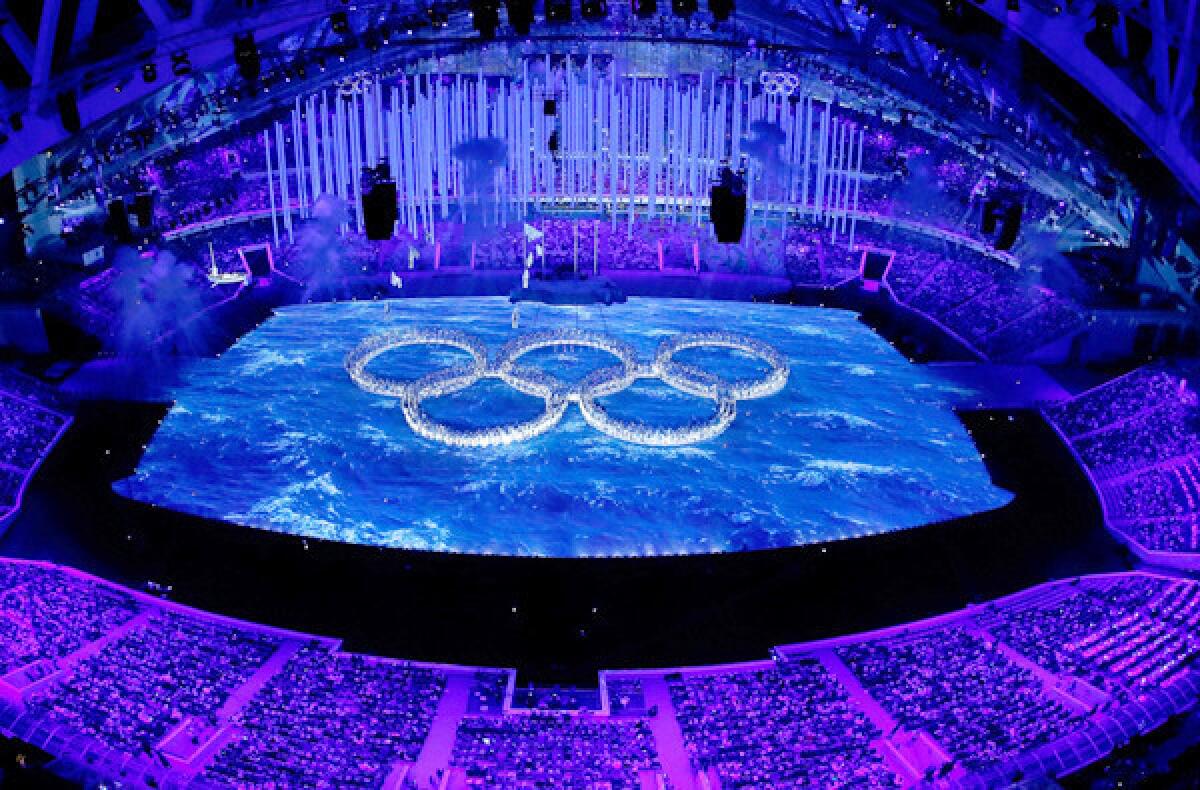IOC still pondering what to do over allegations of widespread doping by Russians

- Share via
Seventeen days before the opening ceremony for the 2016 Summer Games, Olympic leaders still aren’t sure what to do with the Russians.
Anti-doping authorities want the International Olympic Committee to consider banning the entire national contingent over allegations of systemic cheating among athletes, coaches and officials.
It would set a bold precedent — no country has ever been excluded from the Games for doping — but the IOC’s executive board sounded a more cautious note Tuesday, saying it would spend the next few days exploring “the legal options.”
“We have to do this the right way or it will be an even bigger mess than it already is,” said Anita DeFrantz, an IOC member from Los Angeles.
The board has asked for help from an array of international federations that govern the various sports in the Summer Olympics. To further complicate matters, Russia’s track and field team, which has been banned from competition since late last year, is pursuing an appeal in court.
A comprehensive resolution seems unlikely in the next few weeks.
“There’s no good outcome at this point,” said Roger Pielke Jr. of the Sports Governance Center at the University of Colorado. “Decisions will be made and people will be unhappy.”
But the turmoil engulfing the Olympic movement on the eve of the Rio de Janeiro Games, while unpleasant, might ultimately prove useful.
The trouble began last fall with a World Anti-Doping Agency report that alleged widespread doping within Russia’s track and field program. The international track federation subsequently suspended that team.
Two later reports — one of which was released this week — implicated other sports, alleging that Russian officials and government agencies conspired to conceal hundreds of positive tests from their athletes over the last five years.
The IOC executive board held an emergency teleconference Tuesday to discuss the matter and settled on a multi-pronged approach.
As has often been the case, the board laid much of the problem at the feet of the international federations, asking them to investigate and “take the appropriate measures.”
The Russian track ban notwithstanding, anti-doping enforcement has traditionally focused on individual athletes. The Assn. of Summer Olympic International Federations appears to be leaning in that direction, preferring case-by-case sanctions over a blanket ban.
“It is important to focus on the need for individual justice in all these cases,” the association stated.
Any penalties handed down could be subject to appeal. It remains unclear if there is time for mass adjudication before the Games begin Aug. 5.
“We’re talking about hundreds of athletes who would need to have their cases evaluated,” Pielke said.
Meanwhile, IOC leaders will consider other options. Their decision will probably hinge upon the Russian track athletes’ appeal.
The Court of Arbitration for Sport, expected to rule later this week, could side with the track federation, establishing a precedent for team-wide bans. Or, it could go the opposite direction.
“As soon as we get more information, we’ll reconvene,” DeFrantz said of the IOC’s executive board, adding: “We’re doing as much as we can, as fast as we can.”
At the very least, Olympic leaders will pursue disciplinary proceedings against Russian Sports Ministry officials mentioned in WADA’s McLaren Report earlier this week.
They will also begin retesting samples from all Russian athletes who competed at the 2014 Winter Olympics in Sochi, where workers at a drug-testing lab allegedly swapped dirty samples for clean ones.
And WADA still has a role to play in all this.
In the McLaren Report, investigators said there was much more evidence to be scrutinized. The IOC has asked them to proceed as quickly as possible, and to provide names of alleged dopers.
No athletes have been identified by the McLaren team so far.
Though the ongoing controversy might cast a shadow over the Rio Games, all the attention being paid to doping could help in the long run.
It could fuel a growing effort to centralize the anti-doping effort. At present, each nation is responsible for testing its own athletes; critics would like to see WADA given global authority over enforcement.
Pielke believes that policies need to be modernized to account for corrupt organizations and governments, not just corrupt athletes. He remains hopeful.
“When the Games end, the sports world still has a lot of problems to deal with,” the professor said. “The worst-case scenario would be that everyone forgets.”
More to Read
Go beyond the scoreboard
Get the latest on L.A.'s teams in the daily Sports Report newsletter.
You may occasionally receive promotional content from the Los Angeles Times.







